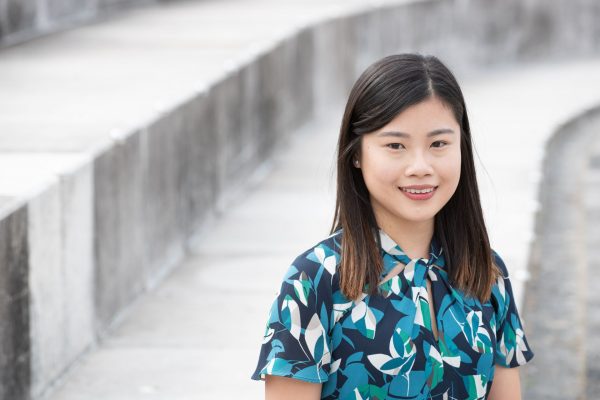
Dr Eunice Lo describes the impact of seed funding on developing vital climate research.
My research explores what climate change means for extreme weather events, such as heatwaves, and how they impact human health. If we can understand the adverse impacts of a changing climate then we can make plans to avoid devastating outcomes, by reducing greenhouse gas emissions and adapting our society.
Even though the UK has a temperate climate, we still experience heatwaves. In 2003 we experienced a heatwave which caused more than 2,000 excess deaths in England alone. When the body is exposed to high ambient temperatures, it has to work harder to maintain an optimum body temperature and this can be particularly challenging for older people and people with cardiovascular or respiratory conditions. For some, it can have fatal consequences. It is easy to think extreme weather only affects other places or future generations but it’s not true. We are feeling the impacts of it already and climate change is making extreme heat worse.
I’m a member of the University of Bristol’s Cabot Institute for the Environment, which is a diverse community of over 600 experts, addressing global environmental challenges. Through the Cabot Institute, I’ve been exposed to much more environmental research, and I’ve formed connections with epidemiologists, civil engineers and public health experts who I work with.
Originally, I was exploring heat-related mortality in 15 cities in the US. I examined the relationship between temperature and mortality counts and applied that to climate projections for the future, to project the number of extreme heat-related deaths in each city. I found that if the global average temperature rise is limited to two degrees Celsius, as set out in the 2015 Paris Agreement, then hundreds to thousands of lives could be saved per city. Based on the current policies of nation states, we are headed towards a three degree rise in global warming. This research provides explicit evidence for the real-world implications of this rise.
Part of the original funding for this project came from the Cabot Institute Innovation Fund, which provides seed funding for interdisciplinary environmental research. The research has since been supported by international partners and broadcast on global media, which would not have been possible without the initial funding. Speaking about my research live on BBC World News was one of the most extraordinary experiences I’ve ever had, and it made me realise that connecting climate research with health outcomes is more relatable to the wider public than environmental research alone.
Seed funding is so important because it allows you to explore whether an idea works or not before applying for bigger grants. It also provides vital resource for bringing the right people together – my role was directly supported by this seed funding. By supporting the Innovation Fund, alumni and friends have helped extremely important and impactful research that allows us to more fully understand climate change and how it affects us all.
The UK will host the 26th UN Climate Change Conference of the Parties (COP26) in Glasgow from 31 October to 12 November 2021. COP26 brings world leaders together to tackle climate change and accelerate action towards the goals of the Paris Agreement and the UN Framework Convention on Climate Change. The Cabot Institute for the Environment is leading University-wide engagement with COP26. The University of Bristol is also part of the COP26 Universities Network, a growing group of over 80 UK-based universities and research centres working together to raise ambition for tangible outcomes from COP26.
